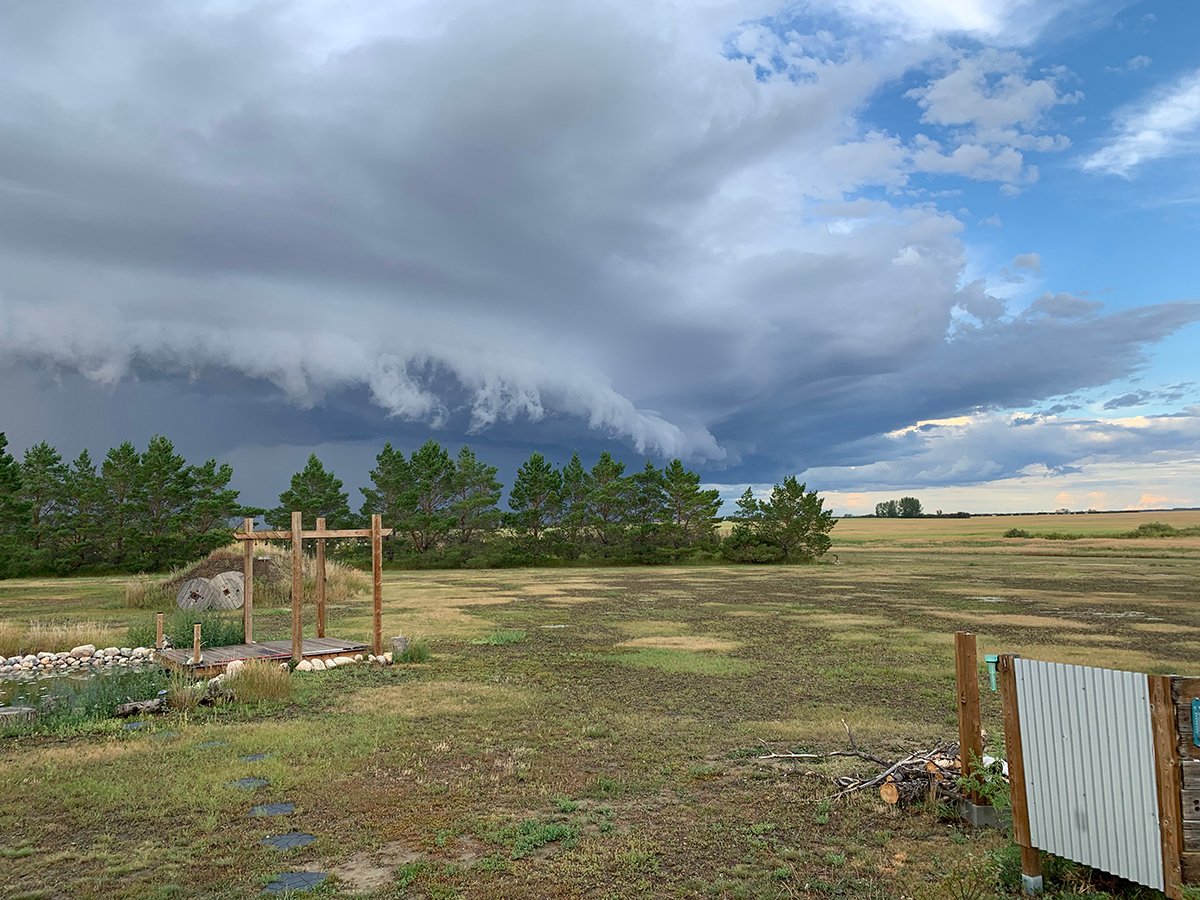Canadian Wheat Board chair Allen Oberg insisted in a speech in Regina last week that the federal government’s vision for the board in a post-single desk world is unworkable.
He urged farmers to sign a petition requesting their right to decide the board’s future.
However, CWB director Jeff Nielsen, who opposes the monopoly and supports the government’s reform plans, called Oberg’s speech hard line.
“It’s very defiant, some posturing,” he said.
Read Also

Storm dynamics and extreme rainfall
Besides moisture, instability and orographic lift, the next biggest factor that contributes to heavy or extreme rainfall is storm dynamics.
Oberg told an audience of about 300 farmers at a board-sponsored breakfast during the Western Canada Farm Progress Show that they must make their voices heard and demand a vote.
“We, as your board of directors, are demanding a plebiscite because it is the right way to settle this issue,” Oberg said.
He told reporters that the plebiscite should be a two-part question.
“Clearly you support the single desk market for wheat and barley or you don’t,” he said. “That’s really what’s at stake.”
The petition was available during the show and can be found online on the board’s website.
Oberg said there is a good chance a plebiscite would show what the board’s surveys show – that farmers see the benefits of the single desk.
“If there was a vote and the result was that farmers want changes, I guess as chair I would certainly cooperate with whatever producers want,” he said.
The future of the board has been more uncertain since the Conservative government won a majority in May and announced its plan to end the single desk.
Oberg wants federal agriculture minister Gerry Ritz to say exactly how the wheat board could operate without the monopoly.
“We think it’s incumbent on the minister to qualify his position as to what a strong and viable CWB means,” he said.
“He’s been talking about this for four or five years. Clearly he needs to communicate that not only to the board but to farmers as well.”
He said the board cannot operate as a grain company because it has no assets and no way to obtain them.
In 2006 the board announced a plan to “further divorce” from the government and give farmers more control.
“It envisioned a CWB involved in new types of business endeavours that could make more money for farmers and save more money for farmers,” Oberg said in his speech.
“It proposed having the law changed to allow the CWB to own real assets and getting rid of the government guarantees, so farmers could take more ownership of their own risk. But it always needed the single desk to survive. Just as it does today.
“The federal government refused to meet with us to discuss this plan. In fact, the minister at the time told us in writing that we were not allowed to pursue it.”
He said the board staff will continue to analyze possible models, but none of them comes close to providing the value that the single desk does.
Nielsen is predicting that the CWB’s late July board meeting to debate reaction to Ottawa’s plans to end the single desk will be a bruising affair.
He believes that despite the strong single desk bias by the majority of directors, they must recognize the government has the right to change the legislation and will do so.
In the interests of the wheat board, they should work with the government to give the CWB the tools it needs to survive as a voluntary marketer, he added.
“We are in flux right now and we’ve got to hunker down and get to work on this,” he said.
“We’ve asked management to come back to the table again with a refined list of ideas and possibilities of moving forward. It’s going to be a bare-knuckle session there. As directors, we have to realize we have to take the bull by the horns and come up with some ideas.”
Nielsen, who attended Oberg’s speech in Regina, said he respects the chair’s position but it misses the point that change is coming.
“Allen and seven of my fellow board members are very strong in their opinion that without the single desk, the wheat board can’t survive. My farmers tell me they want a choice and something can come out of this.”
Nielsen said that with government intentions clear, it is important that the CWB board co-operate with Ottawa to get the best deal possible for the board.
“We need to work with the minister,” he said. “At the moment, we don’t have assets or financing guarantees so there will be a need for a great deal of co-operation and if we take the lead first in identifying where we go and what we need, then we go to government and build on that. That’s what the minister is asking for.”
Still, he said it is frustrating that the board does not know the precise detail of what the government will propose in autumn legislation.
And he said the Aug. 1, 2012, deadline will be tough to meet.
“It’s going to be a challenge and it will take a lot of hard work,” said Nielsen. “We need to have something in place by Aug. 1 (2012). It might not have to be the final picture but if we get a game plan set up and guidelines set up and get co-operation between ourselves and the minister and farmers, we can work toward getting set up for a transition process and it will be a work in progress for some time.”















